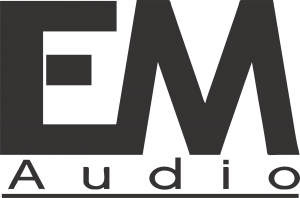Clipping is a term you may often hear in the world of car audio, but what does it actually mean? Understanding clipping is crucial for maintaining the quality and longevity of your car audio system. In this guide, we’ll explain what clipping is, how it affects your car audio, and how you can prevent it.
What is Clipping?
Clipping occurs when an audio signal is amplified beyond the maximum capacity of an amplifier or speaker. Imagine pouring water into a glass. If you pour too much, the water overflows. Similarly, when the audio signal exceeds the amplifier’s capacity, it results in distortion, which is referred to as clipping. This distortion can be detrimental to your car audio system, leading to poor sound quality and potential damage to your equipment.
How Clipping Affects Your Car Audio
- Distorted Sound Quality:
- Clipping causes audio signals to become distorted. Instead of a clean and clear sound, you get a harsh, fuzzy noise that can ruin your listening experience. This distortion is particularly noticeable at high volumes, where the audio signal is more likely to exceed the amplifier’s capacity.
- Damage to Speakers and Amplifiers:
- Prolonged exposure to clipped signals can cause significant damage to your car audio components. The excessive heat generated by the distorted signals can burn out speaker coils and damage the internal components of amplifiers. This can lead to costly repairs or replacements.
Identifying Clipping
To protect your car audio system, it’s essential to identify when clipping occurs. Here are some signs to watch out for:
- Audible Distortion: If you hear a harsh, distorted sound at high volumes, it’s a clear sign of clipping.
- Overheating Components: If your amplifier or speakers are getting excessively hot, it might be due to clipping.
- Blown Fuses or Components: Frequent blowing of fuses or damage to audio components can indicate clipping.
Preventing Clipping
Preventing clipping is crucial for maintaining the integrity of your car audio system. Here are some tips:
- Proper Gain Settings:
- Adjust the gain settings on your amplifier correctly. Too high a gain setting can cause the signal to clip. Use a test tone and a multimeter to set the gain precisely.
- Use Quality Equipment:
- Invest in high-quality car audio components. Cheap amplifiers and speakers are more prone to clipping and distortion.
- Limit Your Volume:
- Avoid maxing out your volume. High volume levels are more likely to cause clipping. Keep your volume at a reasonable level to ensure clean and clear sound.
- Regular Maintenance:
- Regularly check your car audio system for any signs of wear and tear. Replace any damaged components promptly to prevent clipping and other issues.
Conclusion
Understanding and preventing clipping is essential for anyone serious about car audio. By following these tips, you can ensure that your car audio system delivers the best possible sound quality without the risk of distortion or damage. At EM Audio, we are dedicated to providing you with the best car audio solutions, helping you achieve the perfect sound experience. For more information and high-quality car audio components, visit our website or contact our expert team.

